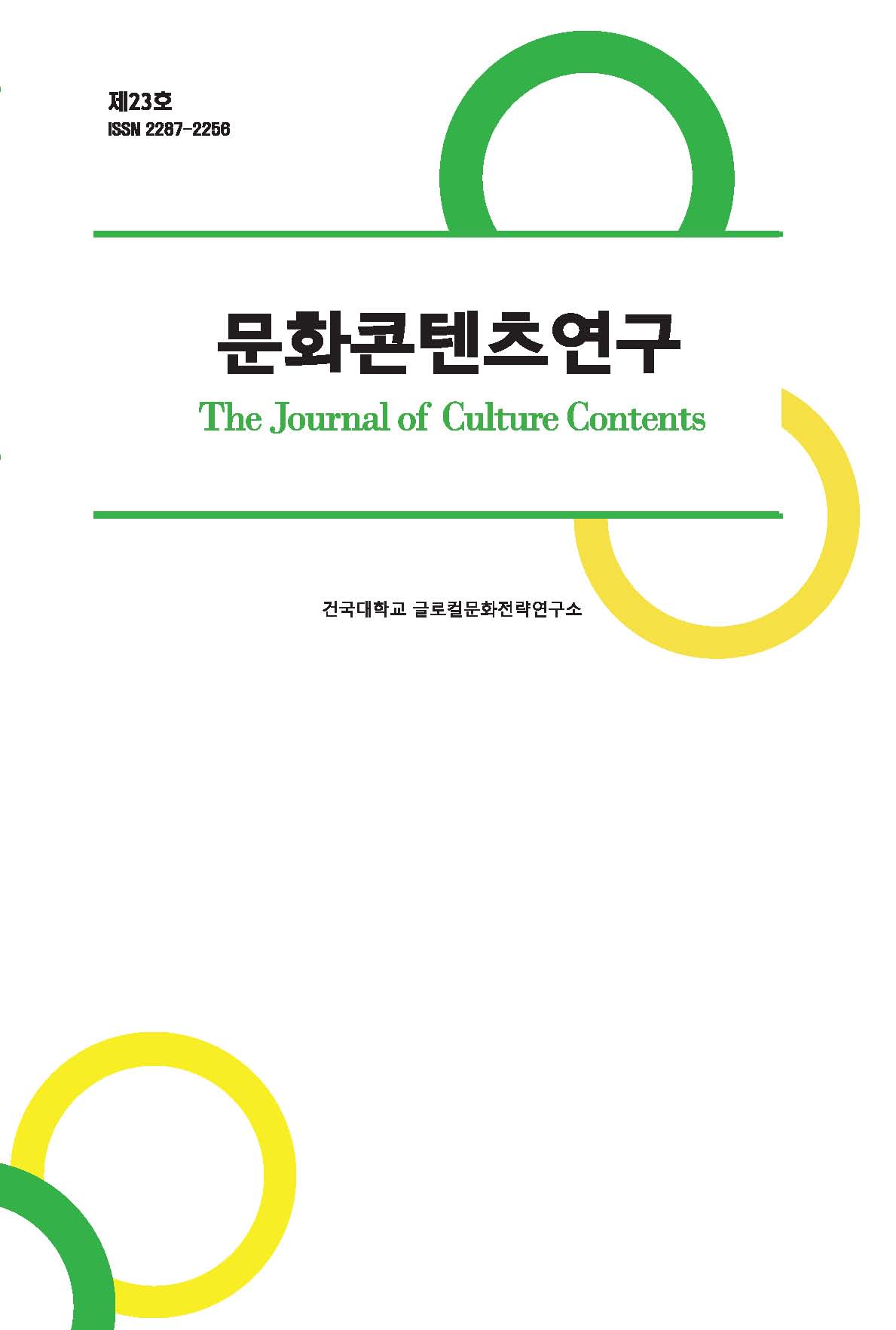Abstract
References
Information
As markets have formed and some changes have occurred in the lives of urban residents as well as urban space since 1990s, North Korea, governed by the state-centered regime, has signaled in the sprouts of urban capitalism, a new social transformation. Given this conditions, a research trend on North Korean cities is gradually moving away from the static approach at the macro level toward the dynamic perspective at the micro level. Following this change, the methodological tradition also attempts to achieve a balance between qualitative and quantitative analysis of the contents of everyday life through the application of cutting-edge technologies such as geographic information systems, digital ethnography, artificial intelligence, and deep learning. This suggests some important implications in that it broadens the scope of research in the field by formatting the topography of North Korean urban studies from a new perspective, and overcomes the limitations of data and partiality by utilizing various research methods. An in-depth analysis of North Korea’s hidden social forces identifies the psychological residue of the residents embedded in urban space, which can be useful for predicting a future track. For the era of unification of the Korean Peninsula, a social formation and its potential via the functions of the state and market need to diagnose. Furthermore, continuous research efforts meet to promote a cumulative manner by an innovative research system based on interdisciplinary or industry-academia-research networks.
1990년 이후 시장이 형성되고 도시 공간과 도시민 삶의 변화가 나타남에 따라 국가 중심의 북한 체제는 도시 자본주의 발전의 맹아 단계에 진입하면서 새로운 사회변화의 가능성을 보여주고 있다. 이러한 시대적 상황을 반영하듯이 북한 도시연구도 거시적 차원에서 북한 사회를 정태적으로 기술하는 접근에서 벗어나 도시 공간 내부에서 이루어지는 동태적 변화의 미시적 요인에 초점을 두는 방향으로 점차 활성화되고 있다. 이에 따라 연구방법론도 지리정보체계, 디지털 문화기술지, 인공지능 및 딥러닝 등 첨단기술의 적용을 통해 일상사의 콘텐츠에 대한 질적 분석과 양적 분석의 균형을 이루고 있다. 이는 새로운 시각에서 북한 도시연구의 지형에 접근함으로써 연구 내용의 확장성을 추구하고 다양한 연구 방법의 활용으로 자료 부족과 편중성의 한계를 극복한다는 점에서 매우 중요한 함의를 가진다. 북한의 도시공간에 배태된 도시민의 심리구조를 규명할 수 있는 분석 틀을 마련하여 숨겨진 사회적 동인에 대해 심층적으로 분석하는 작업은 향후 사회변화를 예측하는 데 중요한 출발점이 된다. 한반도 통일시대에 대비하기 위해서는 시장화의 도입에 따른 북한 사회구성체의 변화와 국가 및 시장의 함수관계에 따른 사회발전의 가능성을 현실적인 맥락에서 진단하고, 학제 간 또는 산학연 네트워크에 의한 혁신적인 연구 체계를 통해 지속적이고 누적적인 방식으로 추진할 필요가 있다.
- 김성배 외, 『시장이 견인하는 북한 도시변화』, 숭실대 평화통일연구원, 2022.
- 박성열․이은정․이정요․한지만, 「북한도시연구의 성과와 과제: 선행연구 분석 중심으로」, 『Journal of North Korea Studies』 제7권(제1호), 고려대 공공정책연구소, 2021.
- 북한도시사연구팀, 『사회주의 도시와 북한: 도시사연구방법』, 한울, 2013.
- 서문기, 「비교역사방법의 이해: 민주주의 연구에 관한 방법론적 확장」, 『한국사회과학』 제21권(제2․3호), 서울대 사회과학연구원, 1999.
- ______, 「사회발전과 문화: 기어츠(Geertz)의 비교문화연구에 대한 방법론적 고찰」, 『사회과학논총』 제15권, 숭실대 사회과학연구소, 2013.
- 이시효․김성배․기정훈, 「평양 모자이크: 위성사진과 GIS를 활용한 평양 도심 15개 구역 빈부격차」, 『현대북한연구』 제26권(제1호), 북한대학원대학교 북한미시연구소, 2023.
- 이희영, 「사회학 방법론으로서의 생애사 재구성」, 『한국사회학』 제39권(제3호), 한국사회학회, 2005.
- 정은미, 「북한주민의 의식주 생활과 사회변동」, 『아세아연구』 제158호, 고려대 아세아문제연구원, 2014.
- 최완규, 『북한 도시정치의 발전과 체제 변화: 2000년대 청진, 신의주』, 한울, 2007.
- Abbott, A., “Of Time and Space: The Contemporary Relevance of the Chicago School”,
Social Forces 75(4), 1997.10.2307/2580667 - Abrahamson, M.,
Urban Sociology: A Global Introduction , Cambridge University Press, 2013.10.1017/CBO9781139017923 - Braudel, F.,
The Structures of Everyday Life: The Limit of the Possible , Spiegel and Grau, 2009. - Clark, T., and L. Foster,
Social Research Methods , Oxford University Press, 2021. - Demick, B.,
Nothing to Envy: Ordinary Lives in North Korea , Harper and Row, 1981. - Em, P., “Urbanization in North Korea: An Outline of its Peculiarities and an Estimation of its Real Rate”,
North Korean Review 14, 2018. - Franda, M.,
Launching into Cyberspace: Internet Development and Politics in Five World Regions , Lynne Rienner Publishing, 2001.10.1515/9781685854447 - Haggard, S., and M. Noland,
Famine in North Korea: Markets, Aid and Reform , Columbia University Press, 2007. - Lankov, A., Ward, P., Yoo, H., and J. Kim, “Making Money in the State: North Korea’s Pseudo-State Enterprises in the Early 20000s”,
Journal of East Asian Affairs 17(1), 2017.10.1017/jea.2016.30 - Lee, S., “The Making of Totalitarian City in Pyongyang: The Spatial Transition from Free to Ideology, and for Marketization”, Ph.D. Dissertation, Weimar: Bauhaus Universität, 2020.
- Ragin, C.,
The Comparative Method: Moving Beyond Qualitative and Quantitative Strategies , University of California Press, 1989. - Stephen, A., and S. Matthews, “Geo-ethnography: Coupling Geographic Information Analysis Techniques with Ethnographic Methods in Urban Research”,
The International Journal for Geographic Information and Geovisualization 40(4), 2005.10.3138/2288-1450-W061-R664 - Tudor, D. and J. Pearson,
North Korea Confidential: Private Markets, Fashion Trends, Prison Camps, Dissenters and Defectors , Tuttle Publishing, 2015. - UN, The 2023 Revision of the World Urbanization Prospects, UN, 2023.
- Publisher :Research Institute of Creative Contents
- Publisher(Ko) :글로컬문화전략연구소
- Journal Title :The Journal of Culture Contents
- Journal Title(Ko) :문화콘텐츠연구
- Volume : 30
- No :0
- Pages :33~61
- DOI :https://doi.org/10.34227/tjocc.2024..30.33



 The Journal of Culture Contents
The Journal of Culture Contents





